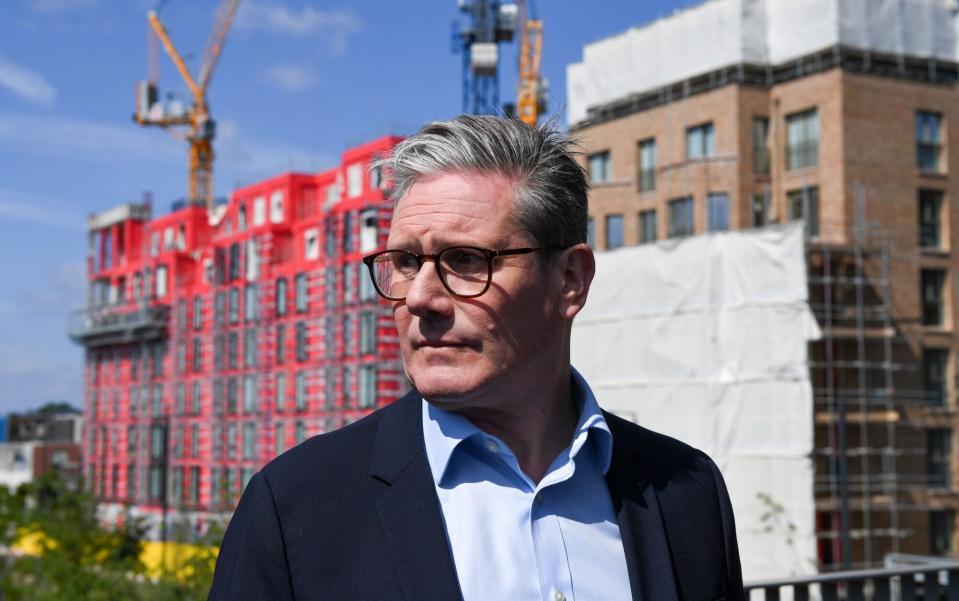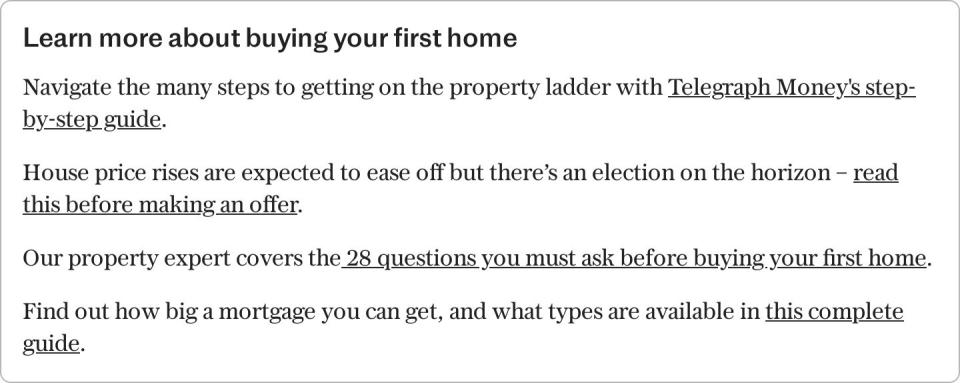Labour stamp duty crackdown will make first-time buyers £7,000 worse off

First-time buyers in London will be nearly £7,000 worse off under Labour as the party is set to overhaul the stamp duty exemption.
Currently those buying their first home only pay stamp duty on properties valued at over £425,000, a measure introduced in then-prime minister Liz Truss’ mini-Budget in 2022.
However, Labour would reduce the threshold back to £300,000 forcing buyers in the capital to pay an extra £6,737.15 to get on to the housing ladder.
The average house price for first-time buyers in London is £434,743, according to government figures, and under Labour they will pay the tax on 5pc of anything over £300,000.
If the Tories remain in power they are committed to making the current threshold permanent, meaning London buyers would pay just £486 in tax on the same property.
The party said that keeping the higher threshold in place will benefit around 200,000 households every year.
Similarly in Hertfordshire, just north of the capital, first-time buyers would currently pay no stamp duty when buying a property for the average price of £351,963.
However, under Labour, they would pay an additional £2,598.15 due to tax.
Those looking to get on to the property ladder already face significant financial pressure as higher mortgage rates make it more difficult to buy a home.
The group is paying almost two thirds more in mortgage payments since the last election, new figures show. The monthly mortgage payment for an average first-time home has risen by 61pc, from £667 in December 2019 to £1,075 because of soaring interest rates, according to property portal Rightmove.
The average UK house price rose by 0.2pc month on month in June, according to Nationwide’s latest house price index.
Prices rose at a slower rate than in May, when they increased by 0.4pc indicating a slight increase as the housing market remained subdued as buyers hold off in anticipation of a rate cut later in the year.
Last week, three of the UK’s biggest lenders cut their fixed mortgage rates in anticipation of interest rate cuts after the election.
HSBC followed Barclays and NatWest in bringing down home loan costs, and more are expected to follow.
The moves follow the decision by the Bank of England to hold its Bank Rate at 5.25pc for the seventh time despite inflation falling to its target of 2pc in May.
However, the drop has raised hopes that the central bank will make its first cut as early as August and bring down the cost of borrowing, with some analysts suggesting the Bank was unlikely to drop its rate during an election period.
Robert Gardner, Nationwide’s chief economist, said: “While earnings growth has been much stronger than house price growth in recent years, this hasn’t been enough to offset the impact of higher mortgage rates, which are still well above the record lows prevailing in 2021 in the wake of the pandemic.”
“For example, the interest rate on a five-year fixed-rate mortgage for a borrower with a 25pc deposit was 1.3pc in late 2021, but in recent months this has been nearer to 4.7pc.”
The Labour party was approached for comment.


 Yahoo Finance
Yahoo Finance 